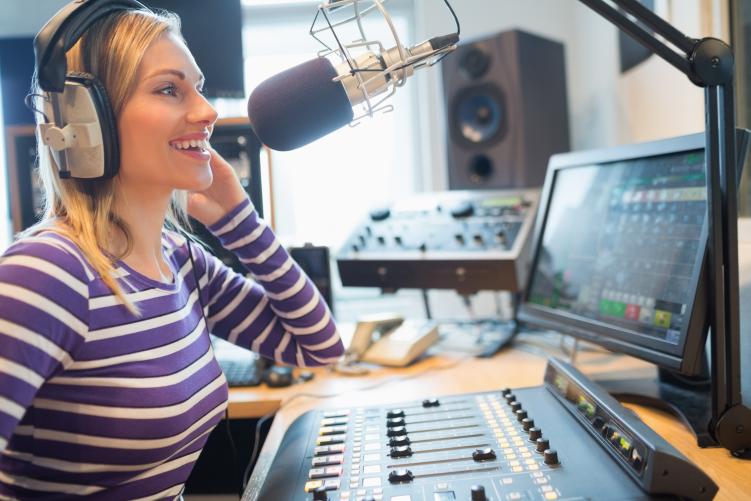Imagine waking up without the morning news update on the clock radio. Or commuting to work without traffic reports and the latest tunes to keep company. For many, radio has become such an integral part of daily routines that it’s hard to picture life without it.
But have people ever stopped to think about just how much this ubiquitous medium impacts their lives? From entertainment and information sharing to emergencies and global connectivity, radio plays a vital role.
The Early Days
It all started with a couple of inventors tinkering with wireless telegraphy in the late 19th century. Guglielmo Marconi got the first radio signal transmitted in 1895, and just over two decades later, the first radio news program was broadcast. Those early days paved the way for radio’s widespread adoption in homes across America and, eventually, the world.
The Informational Side
Can one imagine not having immediate access to news, weather, traffic, and emergency updates through radio listening? Before television and the internet, families huddled around their radios to get the latest news of the day. During times of crisis, people turned (and still turn) to radio broadcasts to get real-time updates on everything from severe weather to emergency instructions.
Even in our digital age, radio remains one of the fastest ways to disseminate important information to large audiences. It travels through the airwaves and doesn’t require internet access, making it an invaluable tool when other communication channels falter.
The Companionship Factor
Chances are, someone knows someone who always has the radio on for the sense of companionship it provides. With hosts and commentators providing a friendly voice in the background from a radio station like Hope 103.2, broadcast radio can make people feel a little less alone as they go about their days.
New music, talk shows, podcasts, and radio entertain while keeping company during commutes, chores, workouts, or any other daily activity. For some, tuning into their favorite radio personality or program is also a way to feel connected to their community.
Radio Everywhere You Go
Another key benefit of radio? Its portability and accessibility. Radios are inexpensive, and battery-powered options are readily available. From the alarm clock to car radio to that little portable taken to the beach, radios make it easy to get a daily dose of news, music, or entertainment anywhere.
An Enduring Free Medium
In a world where people pay for cable TV, streaming services, and other content, radio remains free and widely accessible to all. Even in the internet age, traditional AM/FM radio continues to thrive thanks to the ease and low cost of acquiring a radio. Satellite radio is also an option for those seeking additional programming.
Bringing Communities Together
In addition to entertaining and informing, radio also plays an important role in connecting communities. Local radio allows towns and cities to get local news and information tailored specifically to their place, especially in rural areas where other media platforms aren’t widely known and used. Shows with caller segments give people an avenue to make their voices heard or get questions answered.
During disasters, when other infrastructure fails, radio can provide life-saving information and help coordinate relief efforts. Stations rally communities during challenging times in a way other mass media struggles to match.
Nonprofits, schools, and public service organizations also use radio as a tool to share resources, updates, and messages with wider audiences. By offering a free channel to get vital details out, community radio strengthens community bonds immensely.
The Human Connection
While people now get podcasts, streaming audio, and other audio content from various digital platforms, there’s still something special about traditional radio. More than any other medium, radio retains a strong human connection that reminds listeners they’re all tuning in together.
When a major news event happens, everyone is listening to the same reports over the airwaves. When a big song or hotly debated topic has people buzzing, they turn to the radio’s voices to hear other perspectives. Listening to DJs and commentators of radio stations adds a personal touch that digital content can’t quite replicate.
Radio’s Cultural Impact
Beyond just daily programming, radio has had an indelible impact on culture and the way entertainment and information are experienced. The intimacy and portability of radio sparked revolutions in how music and media are consumed.
The Birth of Stardom
Radio made stars out of entertainers like singers and comedians whose voices carried into households nationwide. It created emotional connections between audiences and performers who became household names without ever meeting in person.
Young people would huddle around their radios, anxiously waiting to hear their favorite songs or shows. Artists got a new platform to share their work and creativity with the world.
News and Talk Radio Niches
The radio waves didn’t just provide entertainment, though. News programs and talk radio flourished, offering a fresh way for people to consume journalism, opinion, and information on politics, finances, sports, and more.
Shows carved out specific content niches that allowed listeners to dive deeper into their interests. From in-depth interviews to call-in debates, radio expanded how people engaged with news and perspectives beyond just print.
Radio’s Legacy
So, while the modern media landscape looks vastly different than it did a century ago, radio remains ever-present in people’s lives. It continues providing portable real-time information, broadcasting emergencies, sharing ideas, and entertaining daily. It keeps communities connected as technology evolves.
More than just speakers in homes, vehicles, and phones, radio is a constant companion that informs shared experiences in a way other mediums cannot quite replicate. Its inexpensive accessibility, human connection, and ability to bring people together simply cannot be overstated. When someone turns on the radio tomorrow, they should appreciate the incredible legacy and impact this “old” technology maintains in everyday life.



0 comments on “The Importance Of Radio In Our Everyday Lives”